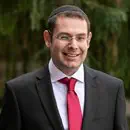
Ambassadors and high-ranking diplomats from over 70 countries descended on Paris Sunday to participate in the peace conference supporting the two-state solution, except from nearby Britain, which only sent a delegation of junior diplomats, The Guardian reported.
According to The Guardian, Britain's 'snub' of the Paris conference signaled its desire to maintain close relations with the incoming Trump Administration. US President-elect Donald Trump will be sworn in this coming Friday.
The UK's Foreign Minister did not attend the conference. Nor did the British Ambassador to France. The UK's delegation to the conference was lead by the head of the Middle East desk of the Foreign Office, Michael Howells.
Trump's transition team had reportedly told French officials that they disapproved of the conference, which Israel sees as an attempt to impose a solution on Israel that is detrimental to its interests and to reward the Palestinian Authority for its support of terrorism and its refusal to negotiate.
AFP reported that the Foreign Office issued a statement saying that the British government declined to send a high level delegation to the conference due to "particular reservations" with the nature and timing of the conference. The reservations given were the lack of representatives from Israel or the PA at the conference and it taking place "just days before the transition to a new American president."
The Foreign Office spokesman said that Britain attended the conference only as an observer.
A spokesperson for British Prime Minister Theresa May slammed US Secretary of State John Kerry's speech last month, which blamed Israel for the stalled peace process. May criticized the disrespectful way in which Kerry referred to the elected government of its democratic ally, Israel, and his singular focus on the Jewish communities in Jerusalem, Judea, and Samaria over and above all other issues.
